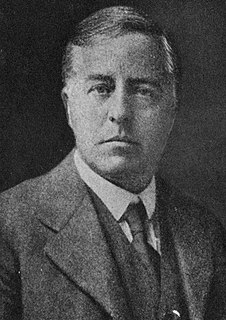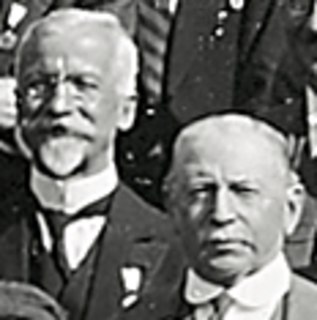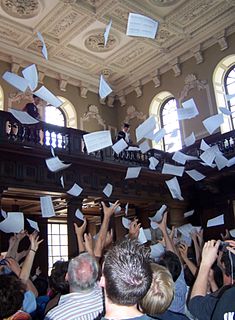Robert Alfred Herman (1861–1927) [1] [2] was a fellow of Trinity College, Cambridge, who coached many students to a high wrangler rank in the Cambridge Mathematical Tripos. Herman was senior wrangler in 1882.
A fellow is a member of a group of learned people which works together in pursuing mutual knowledge or practice. There are many different kinds of fellowships which are awarded for different reasons in academia and industry. These often indicate an different level of scholarship.

Trinity College is a constituent college of the University of Cambridge in England. With around 600 undergraduates, 300 graduates, and over 180 fellows, it is the largest college in either of the Oxbridge universities by number of undergraduates. In terms of total student numbers, it is second only to Homerton College, Cambridge.
In the early days of Tripos, coaches were in private business in rooms off-campus. In the 1880s and 1890s instruction at college improved to the point that coaches merely supervised their students’ progress. [3] :282 Under these conditions the tradition of private coaching fell away, and fellows such as Herman coached students.
In 1895 C. Godfrey, who counted Herman as coach, ranked fourth wrangler, and in 1897 when P. H. Ezechiel also came in fourth. In 1898 Herman coached A. H. Pocck who came eighth and C. S. Lloyd who came tenth. In 1899 his students included seventh, ninth, and tenth wranglers. In 1900 senior wrangler J. E. Wright was his student, and his textbook A Treatise on Geometrical Optics was published. [4]
In 1903 Harry Bateman was senior, P. E. Marrak second, and G. F. S. Hills fifth under Herman’s coaching. Arthur Eddington was senior wrangler in 1904, and Herman had four other students in the ranks of the top ten wranglers. J. E. Littlewood (1905) and Arunachala Tyaga Rajan (1906) were senior wranglers, E. H. Neville came second in 1909, and many other students of Herman made it into the top ranks of wranglers before the ranking was abolished.
Harry Bateman FRS was an English mathematician.
Each year Herman gave a course in differential geometry. [3] :451 His students James Jeans, Harry Bateman, and Arthur Eddington, among others, later proved their facility with methods of differential geometry as they developed the theories of electromagnetism and relativity of spacetime.

Differential geometry is a mathematical discipline that uses the techniques of differential calculus, integral calculus, linear algebra and multilinear algebra to study problems in geometry. The theory of plane and space curves and surfaces in the three-dimensional Euclidean space formed the basis for development of differential geometry during the 18th century and the 19th century.

Sir James Hopwood Jeans was an English physicist, astronomer and mathematician.

Electromagnetism is a branch of physics involving the study of the electromagnetic force, a type of physical interaction that occurs between electrically charged particles. The electromagnetic force usually exhibits electromagnetic fields such as electric fields, magnetic fields, and light, and is one of the four fundamental interactions in nature. The other three fundamental interactions are the strong interaction, the weak interaction, and gravitation. At high energy the weak force and electromagnetic force are unified as a single electroweak force.
Andrew Forsyth reviewed the history of Tripos, and wrote, "my old friend, R. A. Herman, who died a few years ago, a man of unusual manipulative skill, a great and stimulating teacher, the last of the great coaches." [5]

Prof Andrew Russell Forsyth, FRS, FRSE was a British mathematician.






